Six faculty members dedicated to developing cultural and ethnic diversity at U-M have received the 2011 Harold R. Johnson Diversity Service Award from the Office of the Provost and Executive Vice President for Academic and Affairs.
The recipients are Crisca Bierwert, LSA; Deborah Carter, LSA; Avery Demond, College of Engineering (CoE); James Holloway, CoE; Martha Jones, LSA and the Law School; Andrew Shryock, LSA.
“This year’s award recipients help the university promote diversity through activities that demonstrate intellectual excellence and commitment to cultural diversity in service, teaching, scholarship and creative activity,” says Lester Monts, senior vice provost for academic affairs. “The University of Michigan community benefits from their dedication to diversity, which is an important part of our educational mission.”
Established in 1996, the award is given in honor of Harold Johnson, dean emeritus of the School of Social Work. The award provides $5,000 to recipients to further research and scholarship opportunities.
The honorees will be recognized at a ceremony and dinner May 2 at the Michigan League.
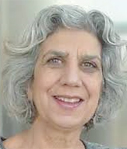
Bierwert
Bierwert, associate director of the Center for Research on Learning and Teaching (CRLT) and coordinator of its Multicultural Teaching and Learning program, has been passionate about diversity throughout her career. She was commended for her efforts to improve pedagogy across the campus by helping faculty make their classrooms and curricula more inclusive. In her talks, writings, consultations and program facilitation, she provides professional development opportunities for faculty and staff from across the university. “She emphasizes that multicultural teaching helps all students, not just those on the margins,” wrote Constance Cook, executive director of CRLT, in a nomination letter.
Bierwert infuses multiculturalism into all of her work, which includes interdisciplinarity and team teaching, as well as a focus on the arts. She has been particularly helpful in working with junior faculty of color, providing resources and support to help them succeed and flourish at the university.
For the last two years, Bierwert has chaired the President’s Diversity Council. In that role, she has initiated new programs and processes and led key faculty and staff through decision-making that has enhanced the climate on campus.
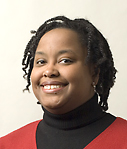
Carter
Carter, associate professor of education in the Center for the Study of Higher Postsecondary Education, School of Education, is lauded for integrating issues of equity and diversity into everything she does, from her research agenda and research team to the way she mentors students, to the courses she teaches and dissertations she chairs.
“She has exceptional skill at raising difficult issues about race and gender as well as other issues central to the concern for equity and diversity. She knows how to talk about tough issues and to do so in a way that can be heard by others,” wrote Deborah Loewenberg Ball, dean of the School of Education, in a nomination letter.
Carter was credited with being the only African-American scholar to serve as director of a major center for higher education (U-M’s Center for the Study of Higher and Postsecondary Education, 2006-09) and she was praised for actively working to build the culture and practice of this nationally top-ranked academic program in ways that supported its core commitment to equity and diversity. Her writings have become core readings in higher education programs across the country, and have impacted the outreach practices of college recruiters and high school counselors throughout the United States.
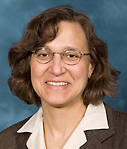
Demond
Demond, associate professor of civil and environmental engineering and the first woman of color in the CoE, was commended for transforming the lives of students by working to encourage a diverse student body to earn degrees in engineering. As a member of the National Research Council’s Board on Engineering Education, she argued for diversifying faculty, noting that it would be easier to recruit women and minorities into engineering if they saw themselves reflected in the faculty.
She served as faculty lead for the CoE Michigan Engineering Transfer Support program, which supports students who transfer to CoE as juniors. Demond helped document among some transfer students a phenomenon called GPA shock, in which grade point averages would fall significantly after starting classes at U-M. Through support programs Demond helped create, transfer students’ GPA shock steadily has decreased over the past two years.
Demond also was recognized for her work to enhance the diversity of engineering undergraduates by working with minority feeder schools. “Her focus on recruiting, mentoring and retaining women and URM (under-represented minority) students tends to be reflected best at the personal level: she changed the lives of those students,” wrote Nancy Love, chair of the Department of Civil and Environmental Engineering, in a nomination letter.
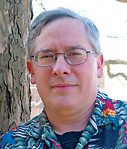
Holloway
Holloway, Arthur F. Thurnau Professor and professor of nuclear engineering and radiological sciences, and associate dean at CoE, was honored for bringing new energy, emphasis and effectiveness to the CoE’s pursuit of diversity. “Professor Holloway’s excellence in classroom teaching combined with his in-depth understanding of approaches to making the classroom an inclusive place of learning is an extremely powerful force for helping the college attain a truly diverse environment,” wrote J. Wayne Jones, Arthur F. Thurnau Professor and 2007 Johnson Award recipient, in a nomination letter.
Holloway, who in 2010 assumed organizational responsibility for the diversity and outreach programs at CoE, was praised for providing support and creative approaches to improving the college’s ability to attract, recruit, retain and graduate a diverse student population. Nominators say he was instrumental in the formation of the Center for Engineering Diversity & Outreach. Under Holloway’s urging, the Multicultural Engineering Program, Women and Engineering, and Engineering Outreach & Engagement were united into a new collaborative organizational model considered to be a national exemplar.
Holloway is credited with crafting the center’s vision, advancing the concept with administration and faculty, seeking funding support for key programs and initiatives and developing innovative ideas for programs and services. Due to his efforts, CoE is poised to expand successful programs including the Michigan STEM Academy and the Summer College Engineering Exposure Program.
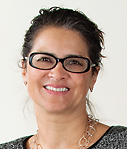
Jones
Jones, associate professor of history and in the Center for Afro American and African Studies, both LSA, and a visiting professor in the Law School, brought earlier training as a public interest attorney in New York City to her teaching career.
Her course “Mapping Black Detroit: Race and Space and Citizenship in a Pre-Civil War American City” takes up major themes of migration, urbanization, segregation and unrest, engaging with primary historical sources along with the Geographic Information System, Adobe Illustrator and Flash programming. “This is a wonderfully concrete and exciting way to teach, earning her the admiration and gratitude of her students. It beautifully illustrates the bridges she builds from the classroom into the history and social life of southeast Michigan and the city of Detroit,” Monts wrote in a nomination letter.
Jones is recognized for promoting intellectual excellence and a commitment to cultural diversity through a series of conferences and symposiums and “Reframing the Color Line: Race and the Visual Culture of the Atlantic World” — called the most successful William L. Clements Library exhibit in decades. It became the basis for 17 different U-M classes in the departments of history, English, history of art, American culture, and the CAAS and the School of Music, Theatre & Dance.
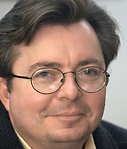
Shryock
Shryock, Arthur F. Thurnau Professor of Anthropology, has been deeply involved with research and civic projects within the Arab-American and Arab-diasporic communities in the Detroit area.
After 9-11 Shryock and collaborator Sally Howell published the essay “Cracking Down in Diaspora: Arab Detroit and America’s War on Terror,” which examined how Arab Detroit was being cut off from certain parts of the Arab/Muslim world and reconnected to others, subjecting it to both collective rites of loyalty and Americanization. His books, post 9-11, have explored subsequent problems between Americans and Arab-Americans. They include “Off Stage/On Display: Intimacy and Ethnography in the Age of Public Culture” (2004), and “Islamophobia/Islamophilia: Beyond the Politics of Enemy and Friend” (2010).
Shryock is cited for helping begin the first complete socioeconomic and demographic study of Arab-American Detroit, which resulted in the 2009 publication of “Citizenship and Crisis: Arab Detroit after 9-11.” “These data, the first of their kind, will not only provide desperately needed empirical ballast to our understandings of the Arab-American experience, they will also provide a defense against the wildest speculations that have been turned against this community in the last decade,” wrote Tom Fricke, chair of the Department of Anthropology, in a nomination letter.

